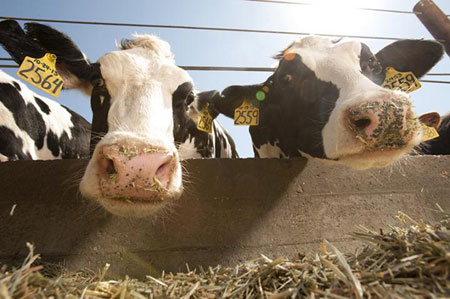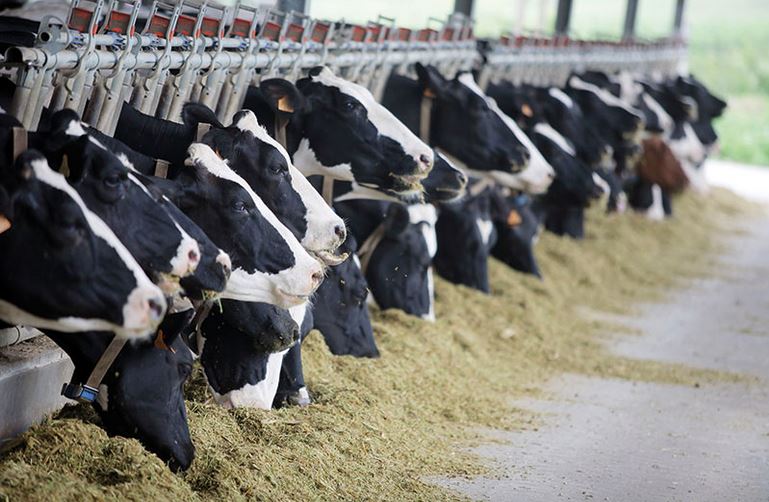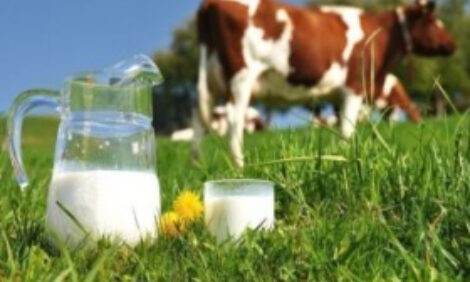



Getting the most benefit from palm fat supplements
Emerging research has demonstrated that using coated folic acid along with palm fat powder in cattle feed can boost growth performance and rumen health without causing negative side effects.A new study published in the Journal of Integrative Agriculture has confirmed that adding coated folic acid (CFA) to cattle feed supplemented with palm fat powder (PFP) improves growth performance in dairy bulls. The researchers found that the compounds promoted nutrient utilisation, boosted beneficial microbial enzyme activity and microflora while also improving liver health. But the researchers didn’t make any specific recommendations on the concentrations of CFA and palm fat powder to include in feed. More research is needed before farmers can have evidence-based recommendations on proper supplementation.

Background
Previous studies have shown that supplementing cattle feed with palm fat powder can boost milk production and feed efficiency. PFP enhances activity in different nuclear receptors that control energy production and utilisation, making nutrient uptake more efficient.
PFP supplementation hasn’t been a runaway success though – other studies have shown that including palm fat powder in cattle diets has negative side effects. This research demonstrates that adding PFP to cattle feed lowers neutral detergent fibre digestibility and makes the rumen less acidic. This means that the cows can’t break down their food effectively.
In order to reap the benefits of PFP supplementation, researchers have tried identifying substances that can counteract the negative rumen effects. One strategy is to review substances that allow beneficial rumen microbes to proliferate and see if the positive effect remains when used in conjunction with palm fat powder.
This is where coated folic acid comes into play. Other studies show that folic acid stimulates microbial growth in the rumen and improves overall metabolic rates in cattle. This makes it an ideal co-supplement with palm fat powder – it could enhance the positives of both feed additives while counteracting the negative side effects.
The study
The researchers wanted to test if palm fat powder and folic acid supplementation had a beneficial effect on growth performance, nutrient digestibility, ruminal fermentation and microbiota and liver health.
The researchers sourced 48 uncastrated, year-old Holstein bulls for the study. After they were randomly allocated to four groups, the researchers fed them four different diets. The experimental diets included varying concentrations of supplemental palm fat powder and coated folic acid. The bulls ate the diet for 110 days, and the researchers monitored rumen health and other indicators during that period.
The researchers measured the number of times feed was accepted or refused, analysed faecal samples and ruminal fluid (including microbial DNA screening). Body weights were recorded one days 1, 30, 60 and 90 of the study and a liver biopsy was taken on day 110 to measure enzyme levels.
During data analysis, the researchers focused on feed conversion ratios (a way of presenting the relationship between the daily feed intake and the average daily weight gain). They also tested to see if there were any statistically significant changes in performance in the other indicators.
Results and key conclusions
The researchers found that co-supplementing palm fat powder and coated folic acid gave the nutritional and metabolic benefits of both without bringing negative side effects.
They found that PFP increased dietary energy density while the coated folic acid stimulated the growth of beneficial rumen microbes. The results indicate that the supplements reduced fat accumulation in the liver by re-balancing key enzymes. The researchers also noted that supplementation had beneficial effects on the bulls’ kidney functions.
Rumen pH ranged from 6.14 to 6.64. Previous studies indicate that this is the optimum range for microbial growth and efficiency. The researchers also recorded higher average daily gains in weight for bulls fed the experimental diet. The team viewed this as further evidence of improved rumen function.
Based on the success of co-supplementation, the researchers urged additional feed trials. They wrote that palm fat powder and coated folic acid could potentially prevent fatty liver disease in cattle.
Though the results sound promising, the study didn’t give any information on the concentrations of palm fat powder or coated folic acid included in the experimental diets. At this stage, the study stands as more of a proof of concept instead of a hard-and-fast nutrition recommendation for dairy farmers.



